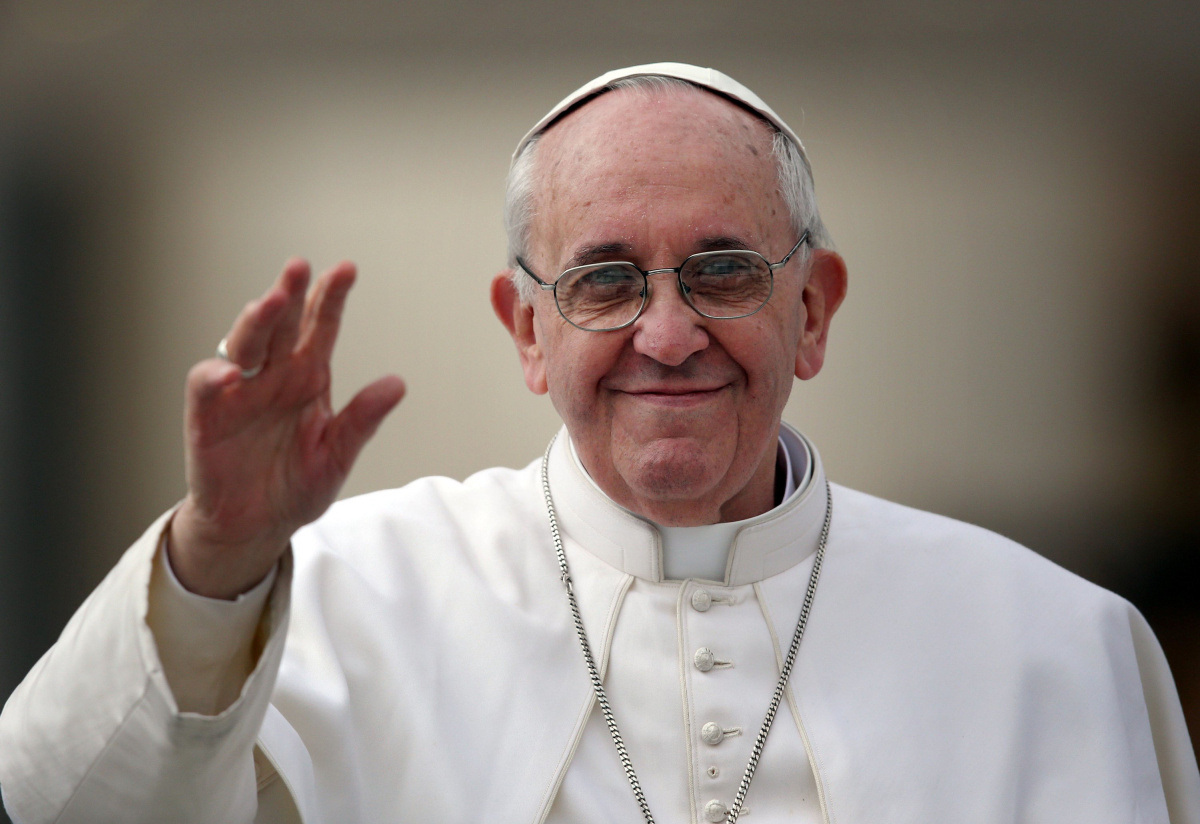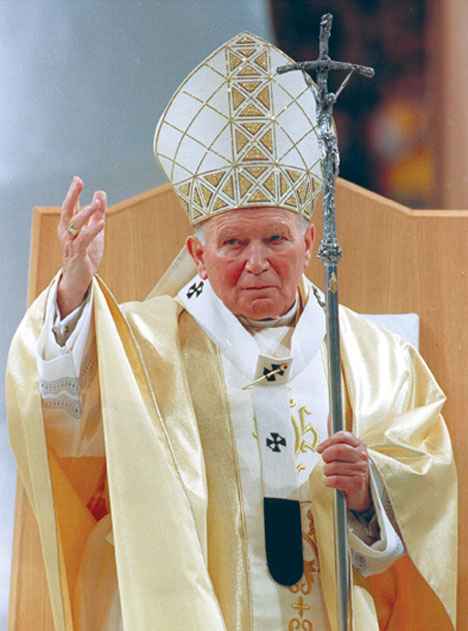Pope Francis Calls For Sunday Laws


Pope’s call for worship welcomed
|
Associated Press
Top of Form Bottom of Form |
By Mark Puls and Charles Hurt / The Detroit News
Maryann Schreiber, a devout Catholic, works the late, late shift Saturday night
and Sunday morning at a hotel.
She has to make a living, but the Hamtramck woman does so at
the cost of mounting guilt over missing church Sunday mornings.
"I want to go back to the old ways where Sunday was the
Lord's day," Schreiber said. "I agree with the pope. I want that life
again."
In a day when computer modems are never fast enough and no
one seems to have enough time for a full night's rest, Pope John Paul II is
issuing a stern warning to Catholics that they should set aside Sunday for
worship -- not errands or their free time.
"This really is an extraordinary move," said Jay
McNally, executive director of Call to Holiness, a Metro Detroit lay group that
promotes traditional Catholic teachings. "This appears to be the strongest
words the pope has issued. Period."
The pontiff used his weekly address Sunday from his window
over St. Peter's Square to urge church members to make time to keep the Sabbath
holy. And today, the Vatican is expected to issue an Apostolic letter from the
pope further stressing the Third Commandment. Apostolic letters are
incorporated into church rules.
Sundays have come to be "felt and lived only as a
weekend," John Paul lamented Sunday. "It (should be) the weekly day
in which the church celebrates the resurrection of Christ. In obedience to the
Third Commandment, Sunday must be sanctified, above all, by participation in
Holy Mass."
In his letter, the pope goes on to say a violator should be
"punished as a heretic," said McNally, who read an unofficial English
translation of the letter on a Vatican Web site.
"A lot of families are ruined by this Sunday
stuff," McNally said, referring to the loss of spirituality on that day.
"It really has fallen apart."
Family togetherness on Sundays, more and more, is giving way
to soccer practice, globe trotting and going to the tanning salon.
"You have things you have to do," said Tina
Mueller of Hamtramck. "You can't just set aside a day for prayer and
reflection."
And when folks show up for church, they often forget to slow
down enough to commune with God.
"Some people now are coming to church in shorts and
can't wait to hit the pools after the service," Lillian Swierczyski of
Hamtramck said. "That's wrong."
She supports a return to the days of the Blue Laws that
closed bars, stores and amusement establishments Sundays.
"That would get people to church in a hurry."
Torn between loyalties
Though the pope's letter is directed at Catholics, his
concerns reach beyond the Vatican and into other religions.
"We're seeing that pull in Sunday school," said
Karen Hea, a member at Grosse Pointe Woods Presbyterian Church. "Kids
today have to make a decision between Sunday school and hockey practice."
The result, she said, is that children are torn between two
noble and honorable commitments: church and team loyalty.
But more than just reflecting upon God, attending church
forges relationships with others who share your beliefs, Hea said.
"If Sunday is hockey time, how can you mold those
relationships. I can't imagine going through a difficult time without your
faith family to support you through it."
Rabbi Joe Klein of Temple Emanu-El in Oak Park said the
Jewish Sabbath -- Saturday -- has long conflicted with modern day's weekend
mentality.
"Anytime a religious community finds itself within a
greater secular culture, there will be conflicts," he said.
As a reformed rabbi, he is reluctant to condemn people for
how they spend Shabbot, but he's overall optimistic about the Jewish faith
surviving today's rushed world.
"Is it what I would like? No," Klein said. "I
think there is an increasing spirituality in our community."
'Rampant confusion'
McNally of Call to Holiness said local religious leaders
could do a better job outlining expectations for Catholics.
"There's rampant confusion among ordinary Catholics. Even
some of the schools and colleges are doing a horrible job today," he said.
The concept of guilt, for example, is foreign to many today.
"People used to say 'fallen away Catholics' 30 years
ago," McNally said. "Now, people just think they can change the
church."
Whatever your religion, the contemplative time worship sets
aside is healthy, said Linda Pieczynski, president of the Chicago-based Call to
Action, a Catholic reform group which claims a membership of 18,000.
"We refresh ourselves spiritually when we have time for
reflection," she said. "When we can't find time for our values, we
have to ask what our real values are."
St. Clair Shores resident Kathy Lozen agreed.
"I wouldn't miss it. You have to find it within
yourself. Once you do, you can't do without it. The world would be a better
place if everyone went to church."
Bouncing the Blue Laws
Laws that ensure moderate, "decent" living
on Sundays -- commonly called "blue laws" as a synonym for rules
promoting gloom or lack of cheer -- have closed businesses and limited drinking
and hunting since the 1920s and '30s. While still prevalent in parts of the
South and Canada, most Blue Laws have fallen by the wayside. Here are some high
points and low points for Blue Laws around Michigan:
1969: Detroit lifted Sunday ban on selling furniture
(including televisions, radios and appliances).
1969: Crowley's department store began operating its
suburban branches on Sundays, but kept the downtown Detroit store closed for
the Christian Sabbath.
1970: Troy city commissioners made the most recent -- and
unsuccessful -- bid to close all businesses on Sunday statewide.
1973: Hamtramck began allowing businesses to open during the
heavy shopping Sundays before Christmas.
1973: Lawmakers considered banning automobile travel on
Sundays, though that wasn't to keep the Sabbath holy, but to conserve gasoline
during the fuel shortage.
1976: Michigan bars began serving liquor by the drink at
noon on Sundays, instead of the previous 2 p.m. start, though some cities kept
the restrictions in place. At the same time, ski lodges won permission to serve
hard liquor on Sundays that fall on Christmas Day or Dec. 26.
1986: Canadian Supreme Court upheld Toronto's 1976 law shutting
most Ontario stores on Sundays.
1995: Grosse Pointe allowed stores to open from 8 a.m. to 8
p.m. Sundays, instead of the previous 10 a.m. to 5 p.m. laws.
